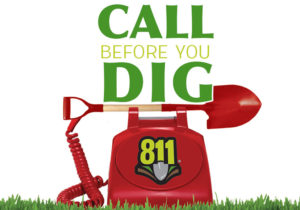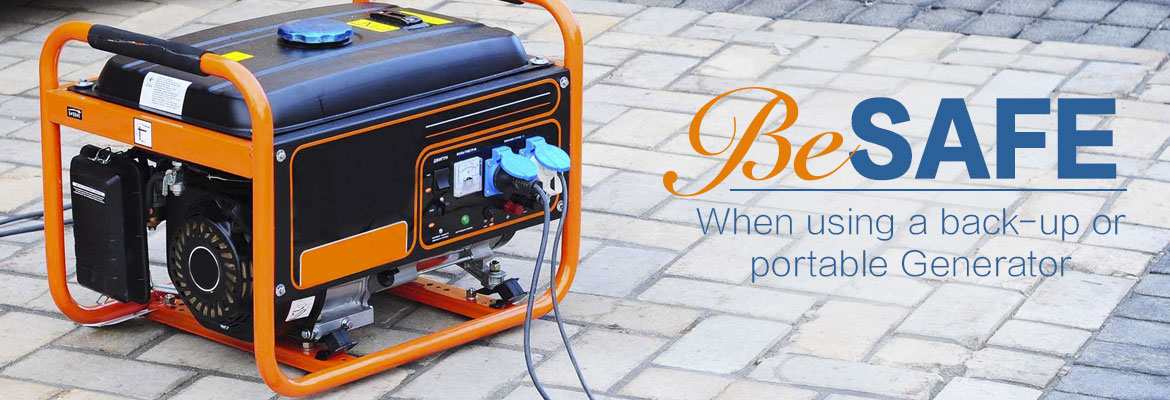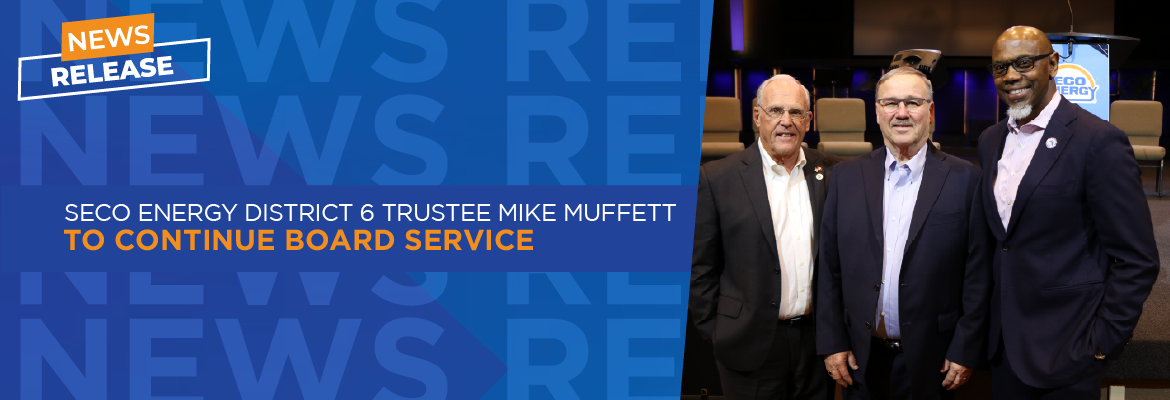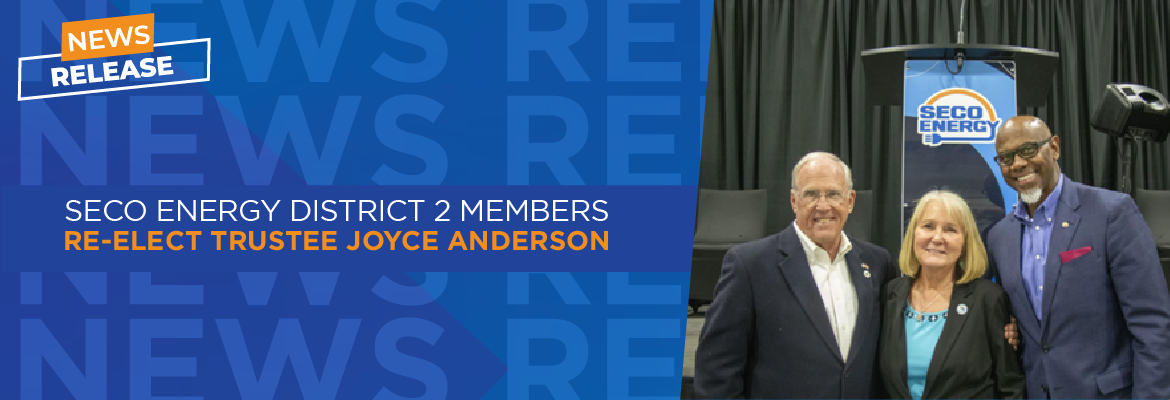Don’t be Caught in the Dark about Generator Safety
The 2017 Atlantic Hurricane Season has officially arrived, and with it the possibility of rain, lightning, heavy winds and downed trees – all of which can cause power outages. For SECO members, especially those who need continuous power to run life-saving devices, a generator can provide electricity when service is interrupted, but generators should be used with caution.
Before operating a portable generator, read and follow the manufacturer’s safety instructions in the operating manual. Always run a generator outside; never operate indoors or in an enclosed area. Portable generators emit carbon monoxide (CO) a colorless, odorless invisible gas that can be fatal to humans and pets. Never operate a generator when it is wet – this poses a risk for electrocution (OSHA advises using a canopy to protect from rain). Do not fuel a generator while it is running and store gasoline in approved containers, out of the reach of children.
A permanent or back-up generator is hard wired directly to your home’s electrical system. Installing a permanent generator is not an average do-it-yourself project. Hire a reputable electrical contractor to install the generator and to wire in its disconnect and transfer switchgear. Do not attempt to connect the generator directly to your electrical panel. Before starting your generator, always properly disconnect from SECO’s service. Read and follow the operating and safety instructions in the generator operations manual.
Kathryn Gloria, Vice President of Corporate Communications and Energy Services, stated, “SECO’s electric system is expertly designed, soundly built and well maintained, which means outages are rare and are typically restored in less than an hour. But when major storm events come through and there is a family member who is dependent on electric medical devices, a generator should be a strong consideration. Do your research, determine your families’ needs and purchase a reliable, cost-effective unit. Read and follow the manufacturer’s instructions and keep safety in mind.”
Learn more about generator safety online. “Like” SECO’s Facebook page and “follow” @SECOEnergy on Twitter for news releases and cooperative updates.







Tyler Meredith
I like that you talk about how a permanent backup generator installation isn’t a DIY project. It makes sense that there are some real dangers when it’s installed since it’s connected to things such as electrical and gas. I’ve been considering getting a generator for my home and having it installed professionally could help ensure it’s done in such a way as to where it won’t lose power and will always work well when we need it.
SECO Energy
Thank you for your comment. We are so glad that you found this article helpful. Generators are a great backup plan when the power goes out. We agree that it is important to have a qualified electrical contractor perform the installation of any generator.